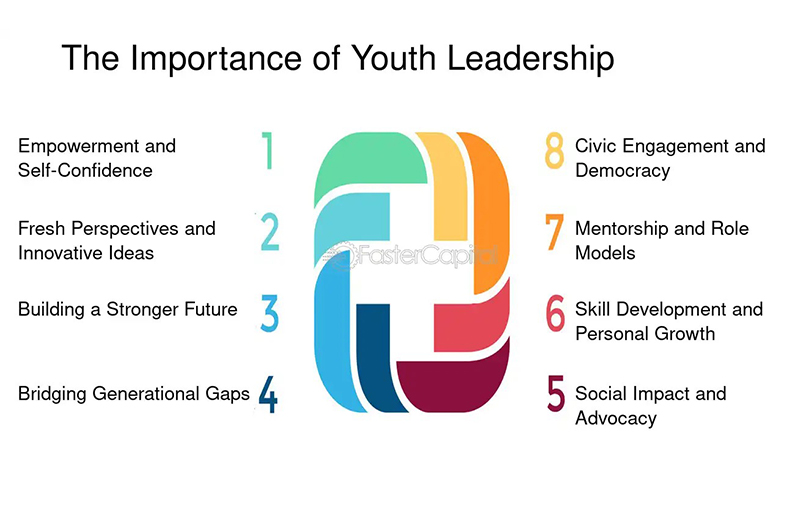AS the columnist of Youth Perspective for over six years, I believe it is time to pay homage to the title of the column itself—Youth Perspective. The concept of a youth perspective remains as relevant to today’s youth as it was years ago. Older adults often disregard the conversations or experiences young people face, associating their experiences or ideas with “inexperience” and dismissing them in favour of those from “more experienced” individuals. When I started this column, this was a dilemma many young people across Guyana, including myself, faced. Given my social work background, I used this platform to raise awareness of issues affecting young people that are often overlooked. Unfortunately, some still associate youth with inexperience or ignorance. However, I am writing this column to remind everyone that young people add value and substance to issues and events all around.
 Have you ever watched the Youth Parliament Debates in Guyana to see how young secondary school students passionately argue their points on an issue? Or have you noticed the achievements of the youth arms of established organisations when supported by mentors? If you’ve answered yes to either, you’re already halfway to seeing the bigger picture. In essence, young people deserve a seat at the decision-making tables. They deserve to have a say in the issues that affect them and to share their perspectives on how these issues might be addressed. In a recent debate I had with older adults, “Gen Z” was labelled the generation of TikTokers, disregarding everything else. Classifying an entire generation based on an app exemplifies the root of the disconnect we face today—misconceptions.
Have you ever watched the Youth Parliament Debates in Guyana to see how young secondary school students passionately argue their points on an issue? Or have you noticed the achievements of the youth arms of established organisations when supported by mentors? If you’ve answered yes to either, you’re already halfway to seeing the bigger picture. In essence, young people deserve a seat at the decision-making tables. They deserve to have a say in the issues that affect them and to share their perspectives on how these issues might be addressed. In a recent debate I had with older adults, “Gen Z” was labelled the generation of TikTokers, disregarding everything else. Classifying an entire generation based on an app exemplifies the root of the disconnect we face today—misconceptions.
In every generation, young people have been positively associated with the word “innovation.” This is because of the “fresh,” new, or unique perspectives they bring to discussions when given the opportunity. Instead of labelling Gen Z as “TikTokers” or “Tablet Babies,” why not ask how their uniqueness can help solve real-world issues? Or consider how they can address their own issues using skills they are comfortable with, such as content creation. In an ever-changing world, there must be evolving thought processes and perspectives. While authenticity is essential, it’s equally vital to embrace change, such as Gen Z’s use of technology to improve climate conditions or raise awareness of current social issues.
Young people often know what can help them—all they need is guidance and patience. I was part of various youth groups in my early life, and I must say that the ones I found most nurturing were those that allowed me to grow independently, with support. I dislike youth groups that stifle or intimidate young people. In my most successful groups, I enjoyed choosing the topics I wanted to advocate for, developing solutions independently, creating campaigns for the causes, and determining how to accomplish my goals. In my church’s youth group, we collectively decided on activities like a hot dog sale for fundraising or a suicide awareness march. Meanwhile, our mentors ensured we were guided through our tasks and learned valuable lessons about the impacts of our decisions.
In my experience with community engagement and work, the future belongs to the youth. While this may be an overused phrase, it is so because of its significance. To create a sustainable and equitable community for all, young people must understand their value and how they can become change agents for their communities and country. If the presidents of today do not inspire the presidents of tomorrow, who then will lead our future? In a sense, this is a form of inheritance—the decisions we make today will impact future generations, whether we are here to witness them or not.
The challenges young people face grow daily, including mental health issues, the changing landscape of work and education after the COVID-19 pandemic, and environmental changes caused by global warming. The solutions being drafted or implemented today will affect young people as they grow into older adults and begin their own families. Similarly, solutions (or the lack thereof) implemented decades ago are now affecting the present generation.
It is time to open up the “round table,” add a few more chairs and engage in meaningful conversations with young people. Misconceptions and misinformation should not guide decisions. Finally, to my fellow young people: if the tables are not welcoming, I hope this column inspires you to create your own tables for discussion and reflection. Our voices, thoughts, and solutions must be heard because our collective future depends on it.












